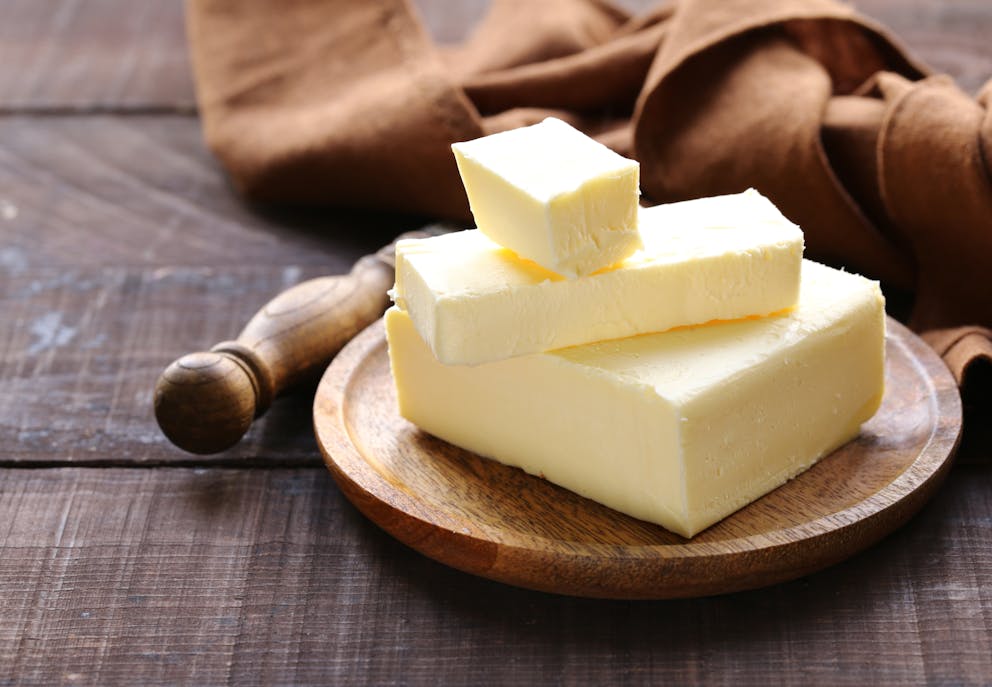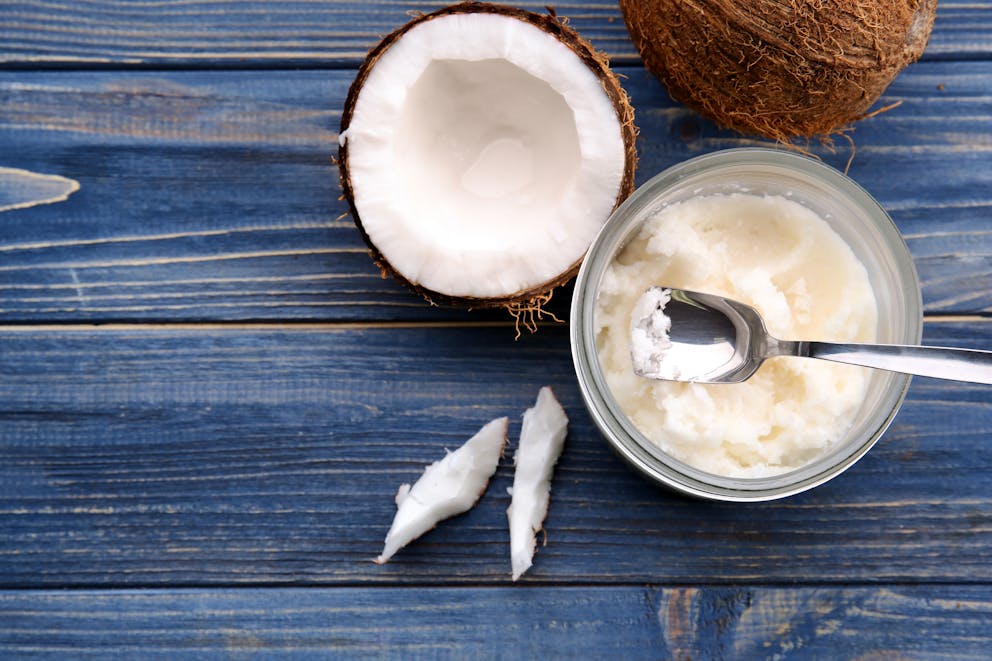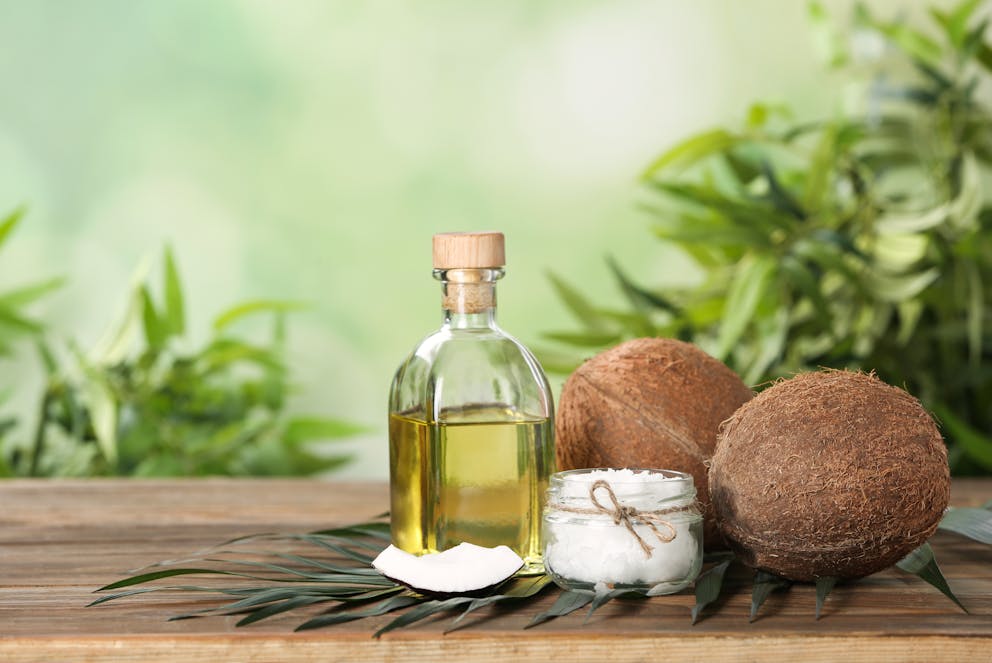Butter vs. Coconut Oil: Which Is Healthier?

Keto Strategy Tips
Expert advice on maintaining a successful keto lifestyle
Learn simple strategies to overcome common challenges and stay on track
Stay motivated with tips and techniques to keep you focused on your keto journey
Practical cutout wallet guide for quick reference on keto-friendly choices and strategies

Keto Strategy Tips
Expert advice on maintaining a successful keto lifestyle
Learn simple strategies to overcome common challenges and stay on track
Stay motivated with tips and techniques to keep you focused on your keto journey
Practical cutout wallet guide for quick reference on keto-friendly choices and strategies

Keto Strategy Tips
Expert advice on maintaining a successful keto lifestyle
Learn simple strategies to overcome common challenges and stay on track
Stay motivated with tips and techniques to keep you focused on your keto journey
Practical cutout wallet guide for quick reference on keto-friendly choices and strategies

Keto Strategy Tips
Expert advice on maintaining a successful keto lifestyle
Learn simple strategies to overcome common challenges and stay on track
Stay motivated with tips and techniques to keep you focused on your keto journey
Practical cutout wallet guide for quick reference on keto-friendly choices and strategies

Keto Strategy Tips
Expert advice on maintaining a successful keto lifestyle
Learn simple strategies to overcome common challenges and stay on track
Stay motivated with tips and techniques to keep you focused on your keto journey
Practical cutout wallet guide for quick reference on keto-friendly choices and strategies

Keto Strategy Tips
Expert advice on maintaining a successful keto lifestyle
Learn simple strategies to overcome common challenges and stay on track
Stay motivated with tips and techniques to keep you focused on your keto journey
Practical cutout wallet guide for quick reference on keto-friendly choices and strategies

Keto Strategy Tips
Expert advice on maintaining a successful keto lifestyle
Learn simple strategies to overcome common challenges and stay on track
Stay motivated with tips and techniques to keep you focused on your keto journey
Practical cutout wallet guide for quick reference on keto-friendly choices and strategies

Keto Strategy Tips
Expert advice on maintaining a successful keto lifestyle
Learn simple strategies to overcome common challenges and stay on track
Stay motivated with tips and techniques to keep you focused on your keto journey
Practical cutout wallet guide for quick reference on keto-friendly choices and strategies

Keto Strategy Tips
Expert advice on maintaining a successful keto lifestyle
Learn simple strategies to overcome common challenges and stay on track
Stay motivated with tips and techniques to keep you focused on your keto journey
Practical cutout wallet guide for quick reference on keto-friendly choices and strategies

Keto Strategy Tips
Expert advice on maintaining a successful keto lifestyle
Learn simple strategies to overcome common challenges and stay on track
Stay motivated with tips and techniques to keep you focused on your keto journey
Practical cutout wallet guide for quick reference on keto-friendly choices and strategies

Keto Strategy Tips
Expert advice on maintaining a successful keto lifestyle
Learn simple strategies to overcome common challenges and stay on track
Stay motivated with tips and techniques to keep you focused on your keto journey
Practical cutout wallet guide for quick reference on keto-friendly choices and strategies

Keto Strategy Tips
Expert advice on maintaining a successful keto lifestyle
Learn simple strategies to overcome common challenges and stay on track
Stay motivated with tips and techniques to keep you focused on your keto journey
Practical cutout wallet guide for quick reference on keto-friendly choices and strategies

Keto Strategy Tips
Expert advice on maintaining a successful keto lifestyle
Learn simple strategies to overcome common challenges and stay on track
Stay motivated with tips and techniques to keep you focused on your keto journey
Practical cutout wallet guide for quick reference on keto-friendly choices and strategies

Keto Strategy Tips
Expert advice on maintaining a successful keto lifestyle
Learn simple strategies to overcome common challenges and stay on track
Stay motivated with tips and techniques to keep you focused on your keto journey
Practical cutout wallet guide for quick reference on keto-friendly choices and strategies

How Does Intermittent Fasting Work?
Understand the science behind intermittent fasting and its health benefits
Learn how fasting impacts metabolism, insulin sensitivity, and hormonal balance
Discover the four stages of intermittent fasting
Get practical tips for integrating fasting into your daily routine

How Does Intermittent Fasting Work?
Understand the science behind intermittent fasting and its health benefits
Learn how fasting impacts metabolism, insulin sensitivity, and hormonal balance
Discover the four stages of intermittent fasting
Get practical tips for integrating fasting into your daily routine

How Does Intermittent Fasting Work?
Understand the science behind intermittent fasting and its health benefits
Learn how fasting impacts metabolism, insulin sensitivity, and hormonal balance
Discover the four stages of intermittent fasting
Get practical tips for integrating fasting into your daily routine

How Does Intermittent Fasting Work?
Understand the science behind intermittent fasting and its health benefits
Learn how fasting impacts metabolism, insulin sensitivity, and hormonal balance
Discover the four stages of intermittent fasting
Get practical tips for integrating fasting into your daily routine

How Does Intermittent Fasting Work?
Understand the science behind intermittent fasting and its health benefits
Learn how fasting impacts metabolism, insulin sensitivity, and hormonal balance
Discover the four stages of intermittent fasting
Get practical tips for integrating fasting into your daily routine

How Does Intermittent Fasting Work?
Understand the science behind intermittent fasting and its health benefits
Learn how fasting impacts metabolism, insulin sensitivity, and hormonal balance
Discover the four stages of intermittent fasting
Get practical tips for integrating fasting into your daily routine

How Does Intermittent Fasting Work?
Understand the science behind intermittent fasting and its health benefits
Learn how fasting impacts metabolism, insulin sensitivity, and hormonal balance
Discover the four stages of intermittent fasting
Get practical tips for integrating fasting into your daily routine

How Does Intermittent Fasting Work?
Understand the science behind intermittent fasting and its health benefits
Learn how fasting impacts metabolism, insulin sensitivity, and hormonal balance
Discover the four stages of intermittent fasting
Get practical tips for integrating fasting into your daily routine

How Does Intermittent Fasting Work?
Understand the science behind intermittent fasting and its health benefits
Learn how fasting impacts metabolism, insulin sensitivity, and hormonal balance
Discover the four stages of intermittent fasting
Get practical tips for integrating fasting into your daily routine

How Does Intermittent Fasting Work?
Understand the science behind intermittent fasting and its health benefits
Learn how fasting impacts metabolism, insulin sensitivity, and hormonal balance
Discover the four stages of intermittent fasting
Get practical tips for integrating fasting into your daily routine

How Does Intermittent Fasting Work?
Understand the science behind intermittent fasting and its health benefits
Learn how fasting impacts metabolism, insulin sensitivity, and hormonal balance
Discover the four stages of intermittent fasting
Get practical tips for integrating fasting into your daily routine

How Does Intermittent Fasting Work?
Understand the science behind intermittent fasting and its health benefits
Learn how fasting impacts metabolism, insulin sensitivity, and hormonal balance
Discover the four stages of intermittent fasting
Get practical tips for integrating fasting into your daily routine

How Does Intermittent Fasting Work?
Understand the science behind intermittent fasting and its health benefits
Learn how fasting impacts metabolism, insulin sensitivity, and hormonal balance
Discover the four stages of intermittent fasting
Get practical tips for integrating fasting into your daily routine

How Does Intermittent Fasting Work?
Understand the science behind intermittent fasting and its health benefits
Learn how fasting impacts metabolism, insulin sensitivity, and hormonal balance
Discover the four stages of intermittent fasting
Get practical tips for integrating fasting into your daily routine
Butter vs. coconut oil—which one is healthier?
While both butter and coconut oil are rich sources of health-promoting fatty acids, grass-fed butter can be considered the more nutritious choice.
Discover the key differences between butter and coconut oil and learn why you should choose grass-fed butter whenever possible.

Butter vs. coconut oil
Butter and coconut oil are rich sources of healthy saturated fats, which are more heat-stable than unsaturated fats, meaning they can be heated to higher temperatures than other oils, such as flaxseed, walnut, or olive oil.
Both have high smoke points, which makes them excellent fats for cooking and baking. However, butter and coconut oil have distinct flavors, fatty acid composition, and nutritional values.
Here are some key differences between butter and coconut oil.
Butter
Butter is made from the fat of cow's milk and contains saturated fats, monounsaturated fats, and small amounts of polyunsaturated fats.
Butter also contains water, milk solids, and 400 different fatty acids, including butyric acid, a potent anti-inflammatory fatty acid with several potential health benefits.
Grass-fed butter is an excellent source of fat-soluble vitamins, including vitamins A, D, E, and K2.
Grass-fed cattle have access to pastures and forage on a natural diet of grasses and herbs, resulting in more nutrient-rich butter compared to conventional grain-fed butter.

Coconut oil
Coconut oil is extracted from fresh coconut meat. It's predominantly composed of saturated fats and an exceptional source of medium-chain fatty acids such as caprylic acid and lauric acid.
While coconut oil doesn't contain significant amounts of vitamins, more than half of its fat content is composed of medium-chain triglycerides (MCTs), a unique group of fatty acids that profoundly benefit metabolic and digestive health.
Its distinct coconut flavor and high smoke point make coconut oil ideal for frying, sauteing, and baking.
Unrefined coconut oil, typically labeled extra virgin coconut oil, is generally considered a better choice than refined coconut oil, which is usually heavily processed, bleached, and chemically treated.
Watch the video below to discover why butter is considered the healthier option.
Which is better?
Butter is nutritionally superior to coconut oil due to its balanced fatty acid profile and higher content of fat-soluble vitamins.
Butter contains a more complex combination of saturated, polyunsaturated, and monounsaturated fat compared to coconut oil, which is predominantly made up of saturated fats.
In addition, butter is a good source of fat-soluble vitamins A, D, E, and K2 and beneficial fatty acids, including conjugated linoleic acid (CLA) and butyrate.
However, that doesn't mean you should avoid coconut oil.
MCTs in coconut oil are easily digested and rapidly converted into energy, which makes coconut oil an ideal fat source for individuals with gallbladder problems or digestive issues and those following a ketogenic diet.
Coconut oil is dairy-free and an excellent butter substitute for people sensitive to dairy. It's also plant-based, and coconut oil products such as Artisana coconut butter are popular options for vegans.

Health benefits of butter
There are many nutritional benefits of eating grass-fed butter.
Butter contains more than 400 fatty acids, many of which have impressive health benefits, and regularly including butter in your daily menu is an excellent way to promote a healthy body.
Here are three health benefits of butter.
1. Aids weight loss
Contrary to popular belief, eating butter can help you lose weight.
A large study published in The Journal of Food Science found that CLA in butter plays an important role in the metabolism of fats and stimulates enzymes needed to utilize dietary and stored body fats as energy sources.
The same study concluded, "Several clinical trials have reported positive correlations between CLA and improvements in body mass index, body weight, body fat mass, abdominal adiposity, and lean body mass."
2. Promotes bone health
Butter is a rich source of fat-soluble vitamins, including vitamin K2.
Vitamin K2 plays a crucial role in maintaining calcium balance in the body and regulates the deposition of calcium into bone tissue.
Lack of adequate vitamin K2 intake increases the risk of brittle bones, and giving kids more butter can support their bone health and may lower the risk of fractures and osteoporosis in later life.
3. Supports metabolic health
Both butyrate and CLA have been found to increase cellular sensitivity to insulin, which plays a key role in blood sugar regulation.
Healthy insulin and blood sugar levels promote metabolic health and significantly lower the risk of metabolic syndrome, insulin resistance, diabetes, and fatty liver disease.

Health benefits of coconut oil
Coconut oil is one of the richest sources of MCTs, which have gained increasing attention from the scientific community for their potential health benefits.
Check out three reasons why you should regularly consume coconut oil.
1. Promotes heart health
You may have heard that coconut oil is bad for cholesterol and increases the risk of cardiovascular disease due to its high saturated fat content. However, this claim is inaccurate.
Research published in Lipids found that regular coconut oil consumption lowered levels of harmful low-density lipoprotein (LDL) cholesterol while raising heart-healthy high-density lipoprotein (HDL) cholesterol levels.
In addition, MCTs in coconut oil stimulate metabolic fat-burning, which supports weight loss and decreases belly fat, a primary risk factor for elevated blood pressure and heart disease.
2. Supports healthy brain function
The liver rapidly converts MCTs in coconut oil into ketones, the brain's preferred energy source.
Because ketones fuel brain cells and support neuronal health, regularly consuming coconut oil can promote normal brain function and cognition.
Coconut oil is an incredibly rich source of lauric acid, a fatty acid with potent antioxidant properties that has been found to protect neurons and brain cells from oxidative damage, which may reduce the risk of dementia and Alzheimer's Disease.
3. Boosts ketones
MCTs’ rapid conversion into ketones can help your metabolism to get into ketosis quickly.
“During ketosis, your body utilizes fat instead of sugars to generate energy, which promotes weight loss and steady energy levels,” explains Dr. Berg. “This may explain why coconut oil can speed up keto-adaptation and help you maintain a healthy weight.”

Key takeaways
Butter vs. coconut oil—which one is healthier?
Both butter and coconut oil are health-promoting fats that you should regularly incorporate into your diet plan to promote a healthy body.
However, grass-fed butter contains significantly higher amounts of fat-soluble vitamins and a more balanced composition of fatty acids, making it the more nutritious choice.
FAQ
1. Is butter or coconut oil better for you?
While butter and coconut oil are excellent sources of healthy fats, butter is generally considered more nutritious.
Butter contains significantly higher amounts of fat-soluble vitamins and has a more complex composition of health-promoting fatty acids compared to coconut oil.
2. Is it okay to use coconut oil instead of butter?
Coconut oil is an excellent alternative to butter. It’s plant-based and dairy-free, making it a suitable option for vegans and those with dairy restrictions.
However, it’s important to remember that coconut oil has a slightly nutty flavor that may or may not work well in your recipes, depending on your taste preferences.
3. Is coconut oil better than butter for cookies?
Whether coconut oil is better than butter for cookies depends on your taste and texture preferences.
Cookies made with coconut oil tend to have a more nutty flavor and slightly crumbly texture. In contrast, cookies made with butter tend to have a soft and chewy texture with a classic buttery flavor.
4. Is butter the healthiest fat?
Compared to many other fats, butter is considered one of the healthiest sources of fat.
Butter is a rich source of fat-soluble vitamins such as vitamins A, D, E, and K2 and contains a complex mix of more than 400 fatty acids, including butyric acid and conjugated linoleic acid (CLA), two potent anti-inflammatory fatty acids with several health benefits.
5. Is coconut oil better for you than butter?
While both coconut oil and butter contain health-promoting fatty acids, grass-fed butter contains significantly higher amounts of fat-soluble vitamins and is generally considered a more nutritious choice due to its balanced fat content.
6. Why replace butter with coconut oil?
Coconut oil is dairy-free and plant-based, making it an excellent butter alternative for individuals with dairy intolerance and those following a vegan diet.
In addition, coconut oil is a rich source of medium chain triglycerides (MCTs), an easily digested fatty acid that has been found beneficial for individuals with gallbladder issues.
6. How much coconut oil is equal to 2 sticks of butter?
You can replace butter with equal amounts of coconut oil. Two sticks of butter equal eight ounces (225 grams) of coconut oil.
7. Is coconut butter healthier than normal butter?
Butter has a more balanced composition of fatty acids and contains more fat-soluble vitamins than coconut oil. However, coconut oil is dairy-free and an excellent butter alternative for individuals with dairy sensitivities.
Next blog
The Antiviral Effects of AutophagyTags

Popular
08/21/2024
55K views
02/23/2025
46.3K views
11/18/2024
277.5K views
03/18/2024
11/21/2022




